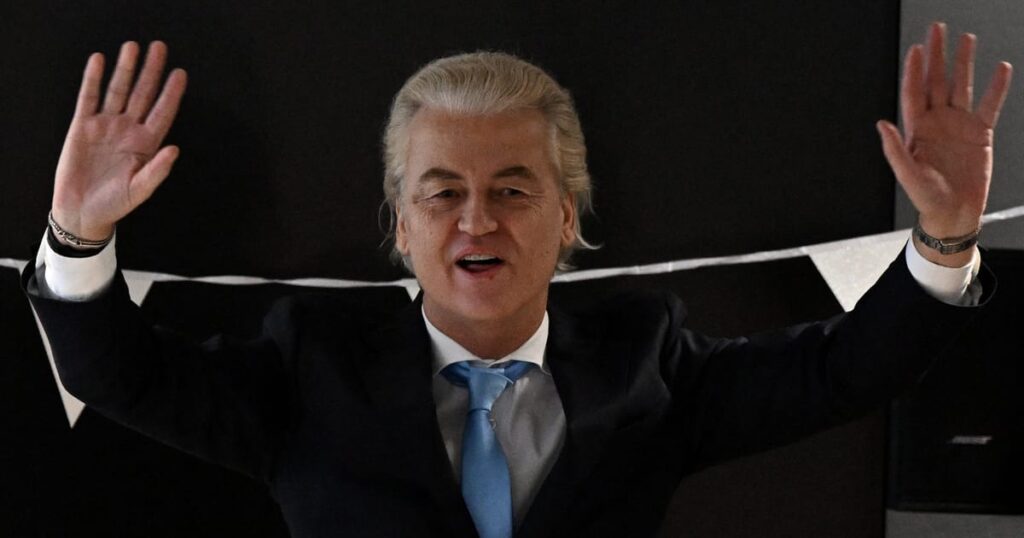The deal still requires approval from factions of all four parties. And the choice of a new prime minister could pose some last-minute difficulties.
The announcement ended nearly six months of rocky talks between the four parties, which at one point saw the NSC leader walk out and a public spat on social media that riveted the Dutch public. .
But Mr Wilders, the shock winner of last year's election, appears to have finally been able to reach a deal by making some concessions, including agreeing not to become prime minister.
Mr Wilders' victory is widely seen as a harbinger of a far-right surge in next month's European Parliament elections. His inclusion as a key force in the new government is expected to pose challenges for authorities in Brussels given his Eurosceptic and anti-immigration stances.
“Hopefully, this can be called a historic day,” Wilders told Dutch broadcaster NOS on Wednesday morning ahead of the announcement. “Being the largest party in the cabinet is something a party leader can only dream of and is good for voters.”
There are still many unknowns about who will form the Netherlands' next cabinet, as the leaders of the other three parties have also chosen to remain in parliament rather than serve as ministers.
This story has been updated.


